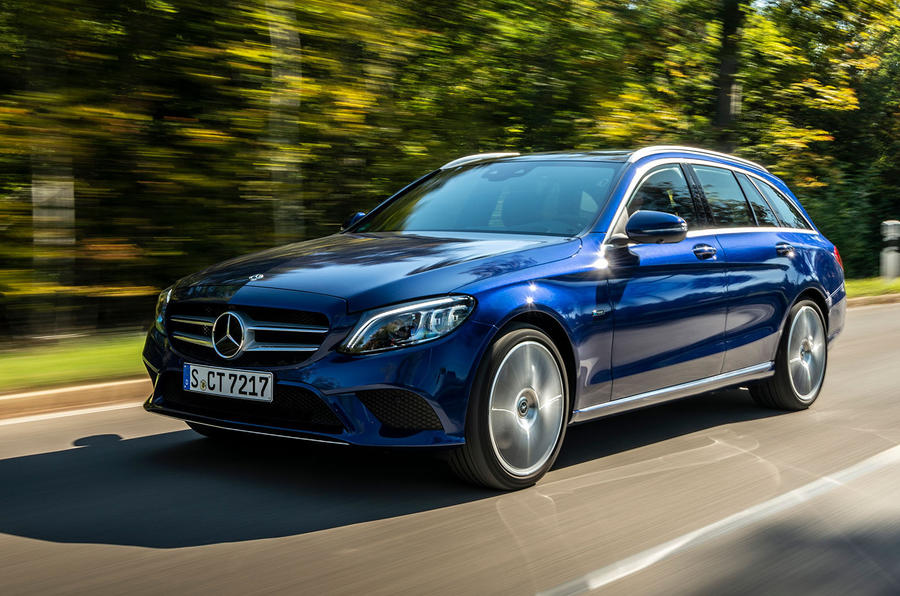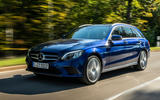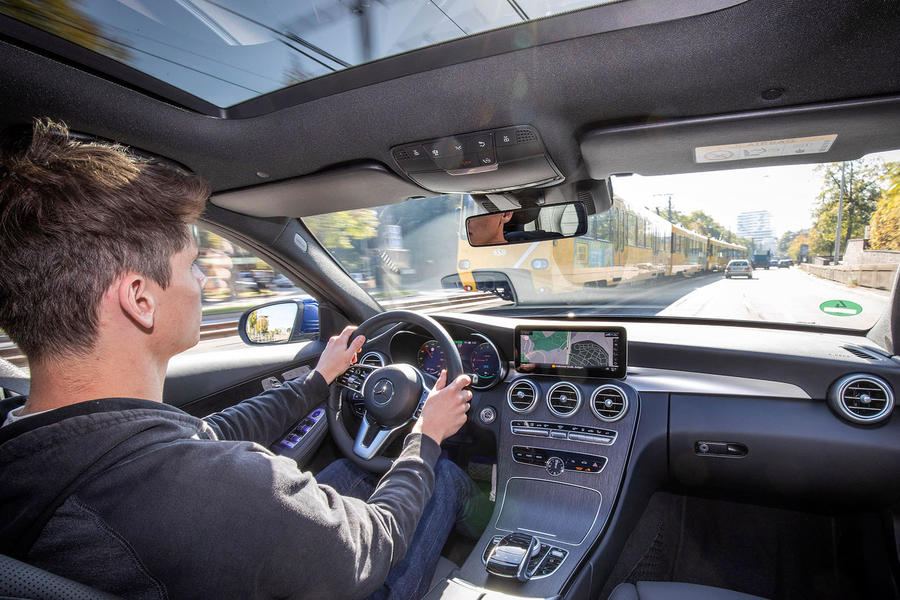What is it?
There’s an incredibly strong chance that Mercedes-Benz might just be on to something big with its new C300de.
You’ll be well aware of the battering diesel cars have been subjected to over the past 18 months or so. Both government and mainstream media have increasingly been pushing the idea that oil-burners are bad news for the general public’s health - particularly in busy city centres - despite the fact that any automotive engineer worth their salt will tell you that the latest diesel engines are cleaner, less polluting and more efficient than ever before.
But what if your diesel car was capable of running on nothing but electricity in these built-up areas? And what if, once you’ve left the confines of the urban sprawl, you could rely on the superior range, low CO2 emissions and effortless torque of its engine to get you to your final destination, free from any associated guilt about your choice of powerplant?
That, essentially, is exactly what the C300de sets out to allow you to do.
Like any other plug-in hybrid, it combines an electric motor – here capable of running the car on electricity alone for around 30 miles, courtesy of a 13.5kWh battery – with an internal combustion engine. Unlike in most other plug-in hybrids, though, that engine is fuelled by diesel.
It’s a 2.0-litre, four-cylinder unit that develops 191bhp and a reasonably meaty 295lb ft of torque. The electric motor, on the other hand, makes 121bhp and 325lb ft. Combined, they give the C300de 302bhp, while torque has to be limited to 516lb ft, most likely so as to not overwhelm the nine-speed automatic gearbox.
Not only does this allow Mercedes to make the rather impressive claim that, in the estate guise you see before you, the C300de will be able to do 0-62mph in just 5.7sec, but also that it should also be capable of achieving an average fuel economy figure of 177mpg and CO2 emissions as low as 42g/km, albeit under NEDC conditions.
Now, plug-in hybrids have been making similarly impressive economy claims for some time. And while they might be able to rely on their ability to travel on electricity alone to bring down their consumption and emissions figures in the city, show one a prolonged stretch of motorway and chances are its petrol engine will struggle to return a figure that’s anywhere near those on-paper claims. The Range Rover P400e, for instance, can supposedly manage 101mpg, but I spent a day in one a few months back and the best figure its trip computer could conjure was 23mpg.
Anyway, while some scepticism is always recommended when looking at these things, the point is that the C300de, with its ability to switch to diesel power at the drop of a hat, should be able to come much closer to matching those claims than its petrol-powered contemporaries.






























Join the debate
Add your comment
The article suggests
The article suggests comparing this to the existing 300d. That car uses a different output engine so is not a direct comparison.
This 300de uses the same engine as the 220d but with motors and batteries attached, so comparing to that c.£37k starting point would be fairer rather than on naming strategy.
PSA
I thought PSA were first with a diesel hydrid? 408, 3008 and DS5. Their 4-cylinder diesels are far smoother than MB, but they have decided not to develop this (or any diesel) any further. MB just playing catch-up!
Diesel Hybrids are the answer . . .
. . it's just a shame M-B didn't use the wonderful new six-cylinder diesel they have developed. Perhaps they will when it comes to the E-Class. Still, you can buy a six-cylinder diesel hybrid now, if you want - I've got one. It's an Audi Q7 eTron but beware, they weigh in at nearly 2.5 tonnes.
Depends on the question
Q7 - Not if you want a 7 seater as having a battery costs 2 seats. Also costs £70k so with fuel savings of £500 a year (not including cost of going back to pick up those 2 passengers left behind) for the average private motorist it'll take several years to get the money back, if ever!
xxxx wrote:
I bought the Q7 eTron used, ran it for a year and got pretty much all my money back. I did 20,000 miles at an average of 60 mpg, while not hanging around. That's £1,000 saved on fuel and probably three times that saved on depreciation compared with a non-hybrid.